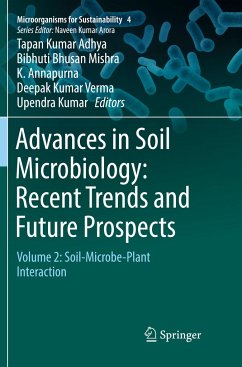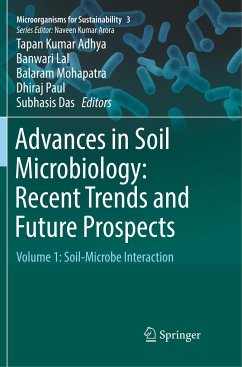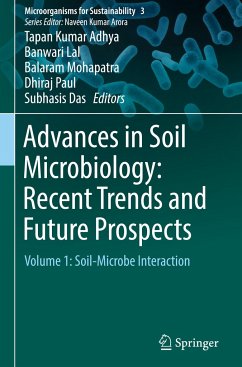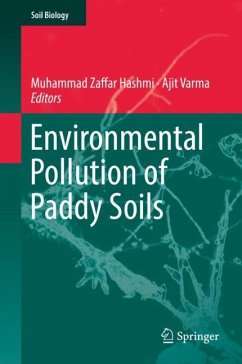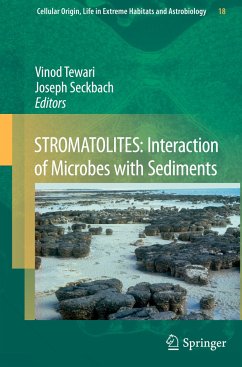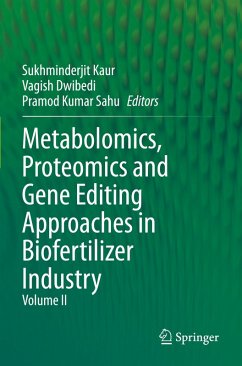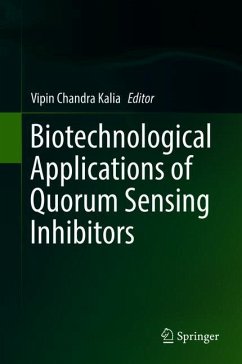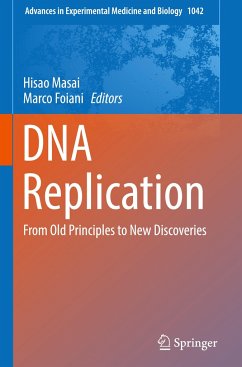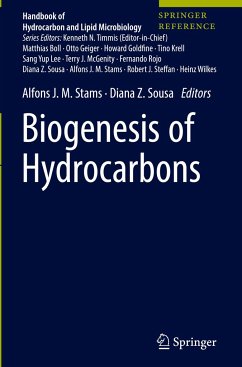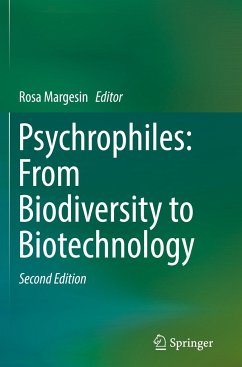
Advances in Soil Microbiology: Recent Trends and Future Prospects
Volume 2: Soil-Microbe-Plant Interaction
Herausgegeben: Adhya, Tapan Kumar; Mishra, Bibhuti Bhusan; Annapurna, K.; Verma, Deepak Kumar; Kumar, Upendra

PAYBACK Punkte
57 °P sammeln!
This book presents a comprehensive collection of articles illustrating the importance of microbial community structure and function for ecosystem sustainability and environmental reclamation. It addresses a diverse range of topics, including microbial diversity, physiology, genomics, ecosystem function, interaction, metabolism, and the fruitful use of microbial communities for crop productivity and environmental remediation.In addition, the book explores issues ranging from general concepts on the diversity of microorganisms in soil, and ecosystem function, to the evolution and taxonomy of soi...
This book presents a comprehensive collection of articles illustrating the importance of microbial community structure and function for ecosystem sustainability and environmental reclamation. It addresses a diverse range of topics, including microbial diversity, physiology, genomics, ecosystem function, interaction, metabolism, and the fruitful use of microbial communities for crop productivity and environmental remediation.
In addition, the book explores issues ranging from general concepts on the diversity of microorganisms in soil, and ecosystem function, to the evolution and taxonomy of soil microbiota, with future prospects. It covers cutting-edge methods in soil microbial ecological studies, rhizosphere microflora, the role of organic matter in plant productivity, biological nitrogen fixation and its genetics, microbial transformation of plant nutrients in soil, plant-growth-promoting rhizobacteria, and organic matter transformation.
The book also discusses the application of microbes in biodegradation of xenobiotic contaminants. It covers bio-fertilizers and their role in sustainable agriculture and soil health, biological control of insect pests and plant pathogens, and the latest tools of omics in soil microbiology, i.e. genomics, proteomics, transcriptomics and metabolomics, which offer pioneering approaches to the exploration of microbial structure and function.
In addition, the book explores issues ranging from general concepts on the diversity of microorganisms in soil, and ecosystem function, to the evolution and taxonomy of soil microbiota, with future prospects. It covers cutting-edge methods in soil microbial ecological studies, rhizosphere microflora, the role of organic matter in plant productivity, biological nitrogen fixation and its genetics, microbial transformation of plant nutrients in soil, plant-growth-promoting rhizobacteria, and organic matter transformation.
The book also discusses the application of microbes in biodegradation of xenobiotic contaminants. It covers bio-fertilizers and their role in sustainable agriculture and soil health, biological control of insect pests and plant pathogens, and the latest tools of omics in soil microbiology, i.e. genomics, proteomics, transcriptomics and metabolomics, which offer pioneering approaches to the exploration of microbial structure and function.



